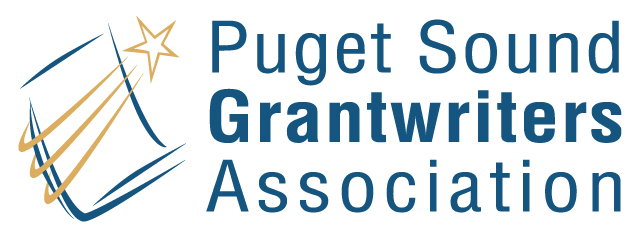Nonprofit FAQs
Here are frequently asked questions about grantwriting. Select any of the questions to read the complete answer.
- Are we ready to write grants?
- Do we need a grantwriter?
- How can we evaluate our grantwriter’s work?
- Can we hire a grantwriter on commission?
Are we ready to write grants?
Here are two excellent ready-to-print checklists that will help you determine if your organization is ready to apply for grants:
The first is by Sarah Brophy of bMuse, who specializes in museums:
Grant-Ready Checklist (PDF)
The second, more detailed list is by Maryn Boess of GrantsUSA:
Grants Readiness Checklist (PDF)
Used with permission from The Ultimate Grants Toolkit: Essential Worksheets, Blueprints, and Step-by-Step Planning Guides to Help You Build Great Grant-Funded Projects! by Maryn Boess. Copyright 2008 GrantsUSA LLC.
Do we need a grantwriter?
Just as in a diet, a single source of sustenance cannot keep an organization healthy. Grants should be part of a mosaic of funding sources including individual and corporate donors, fees for service, membership, and other revenue sources that keep cash flow steady and secure. Grants should enhance other types of fundraising, making up no more than twenty percent of your total income. (See Ken Ristine’s chart of revenue sources in different types of organizations.) If you are a start-up or are hoping grants can save a struggling organization, you probably need a fundraising consultant.
Foundations are very cautious about funding organizations without track records. If you build a solid base with individual donors and other sources before seeking grants, you will be more competitive when the time comes to submit proposals.
For more information about fundraising in general, try these websites:
- Nonprofit Fundraising and Grantwriting
- Roadmap to Fundraising Success, Center on Philanthropy, Indiana University
- Capital Quest, Inc.: Capital Campaigns
- Help 4 NonProfits: Boards and Organizational Development
- Fundraising for Social Change, by Kim Klein, is an excellent book.
How can we evaluate our grantwriter’s work?
Nonprofit executives often ask, “What rate of success can we expect from our grantwriter in terms of proposals funded versus proposals submitted?”
A staff grantwriter’s “success rate” depends on both the grantwriter’s professional skills and the organization’s readiness to submit the proposals in the first place. Specific organizational factors that influence the ratio of proposals funded include the following:
- Has the organization set realistic targets for achievement? Some nonprofit managers may require grantwriters to submit an arbitrary number of proposals each year. To meet this target, the grantwriter may use the “shotgun approach” and submit the same generic proposal to a large number of funders without proper research or cultivation. As a result, the success rate for this approach is likely to be low.
- Does the organization have strong programs that meet a clear community need? Grant proposals have a much greater chance of being funded if they can offer a compelling solution to a well-documented community problem.
- Is the organization seeking general operating, endowment, or start-up funding? These types of grants are generally tougher to get than program funding.
- Is the organization structurally and fiscally sound? Sometimes the best-written grant proposal can be rejected because the funder has serious questions about the organization’s capacity to carry out the scope of work described in the proposal. For more on this issue, see Are we ready to write grants?.
- Do the executive director and board support the grantwriter by actively participating in cultivation and stewardship of funders? Top-level cultivation of funders is essential for success.
- Has the grantwriter been involved in the budget-making process? Too often, grantwriters are asked to bring in a certain amount of revenue based on the needs of the organization’s budget, rather than on what is reasonable and possible. By involving the grantwriter in the budget development process from the outset, the organization can set realistic and achievable revenue targets and avoid a budget crisis later in the year.
In addition to the organizational factors listed above, a grantwriter’s rate of success depends upon his or her professional skills. Read a discussion of the elements of a successful grants program.
So how can you evaluate your grantwriter’s performance? Here are some benchmarks you can use, both quantitative and qualitative.
Quantitative:
- Number of proposals and letters of inquiry submitted.
- Number of grants awarded.
- Amount of money raised.
- Number of new potential funders identified and researched.
- Number of contacts with funders and number of funders cultivated.
- Number of contacts with program staff.
- Number of internal projects worked on.
- Number of reports submitted to funders.
Qualitative:
- Quality of grant proposals: clarity of writing, ability to answer funder’s questions, write a compelling argument for funding, etc.
- Quality of funding research.
- Does the grantwriter have good relationships with funders?
- Does s/he work well with organizational staff and program personnel?
- Does s/he assist them in identifying and developing fundable projects?
- Does s/he do a good job of matching projects and needs with potential funders?
- Is s/he well-regarded in the fundraising community?
- Does s/he work to improve his/her knowledge and skills through professional development? (Requires organizational support.)
- Does s/he provide service to the fundraising community by serving on boards and committees of professional organizations like PSGA?
All these factors are important in evaluating a grantwriter’s performance—not just a simple measurement of grants awarded and money raised.
Can we hire a grantwriter on commission?
No, it’s considered unethical by most professional organizations and funders, both public and private. For an explanation, see Ethics And Commissions.
